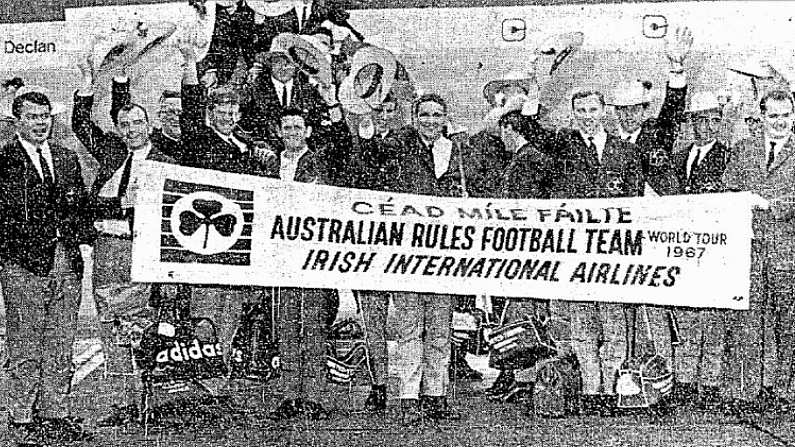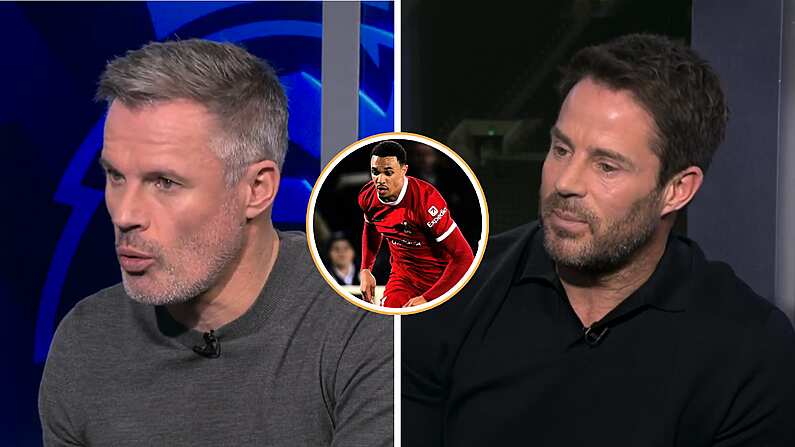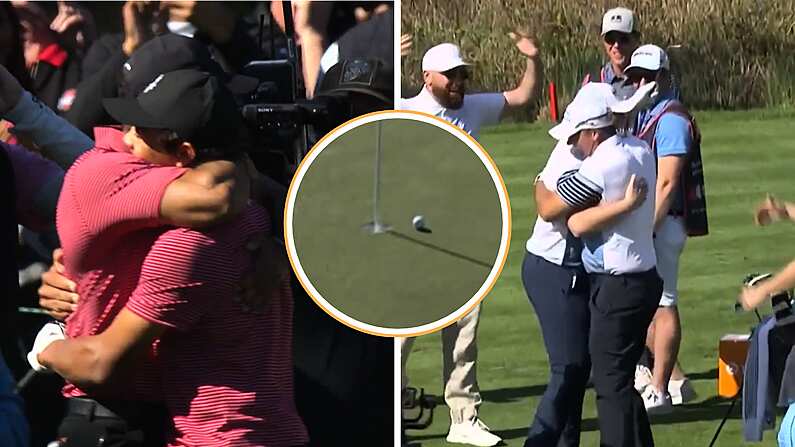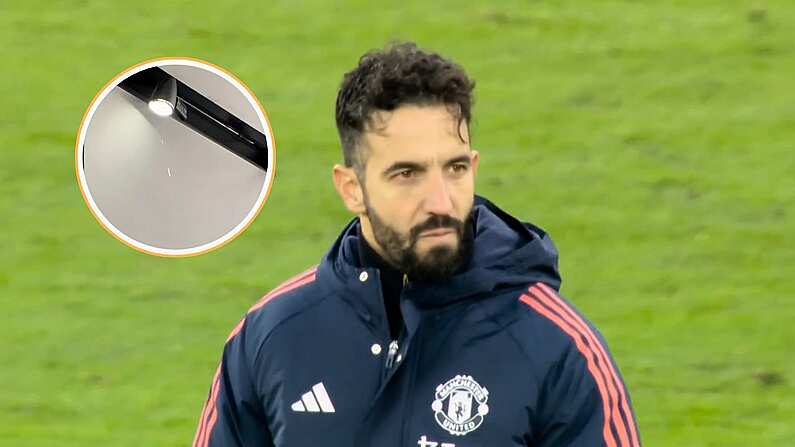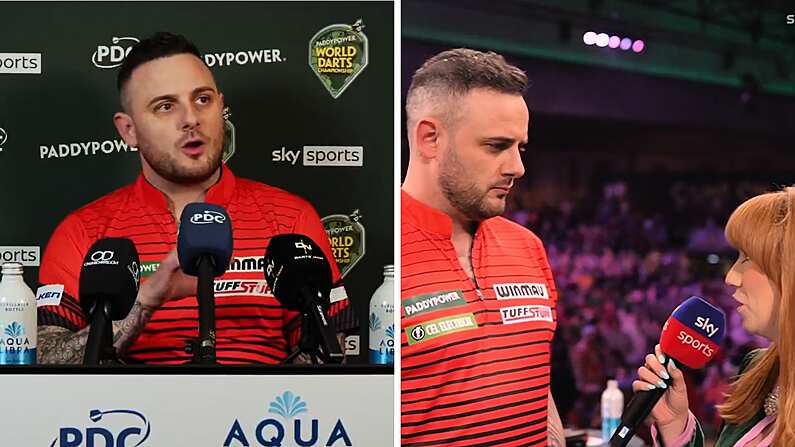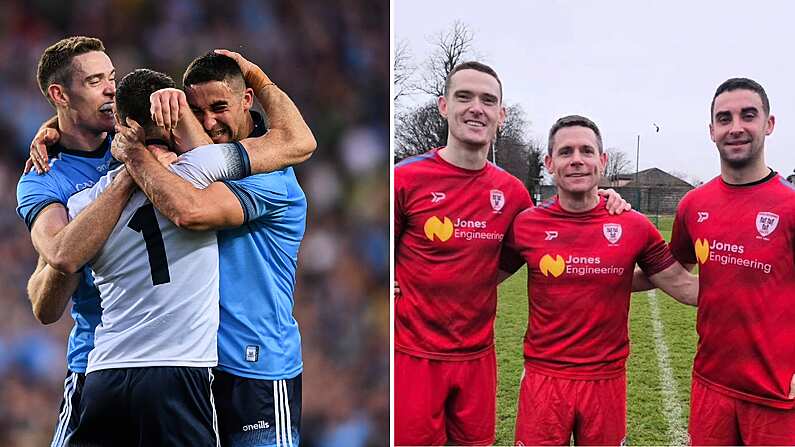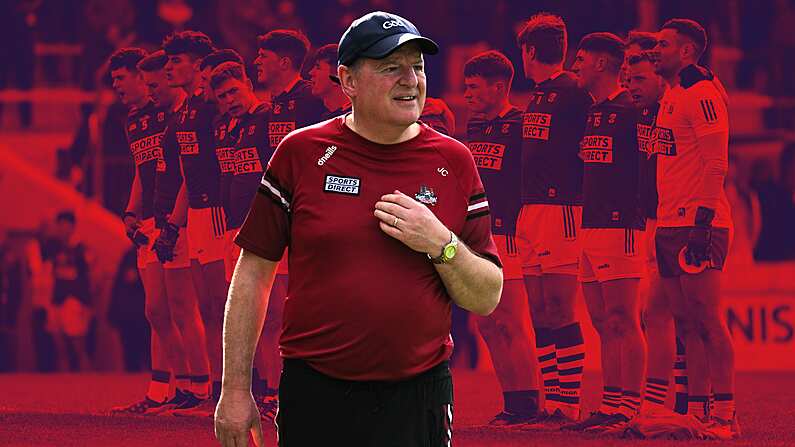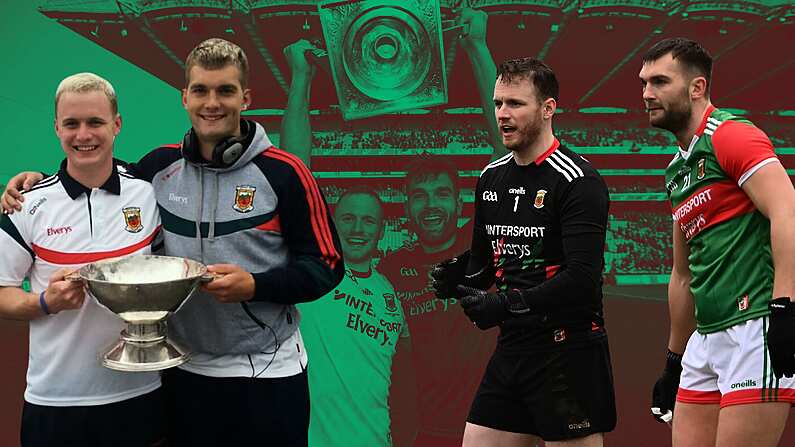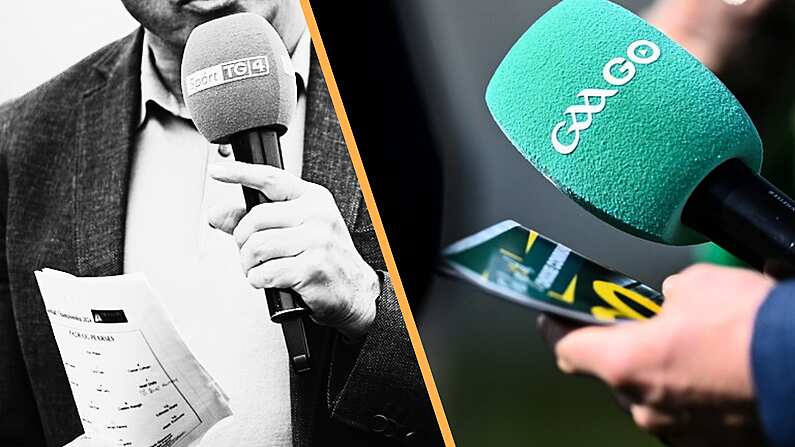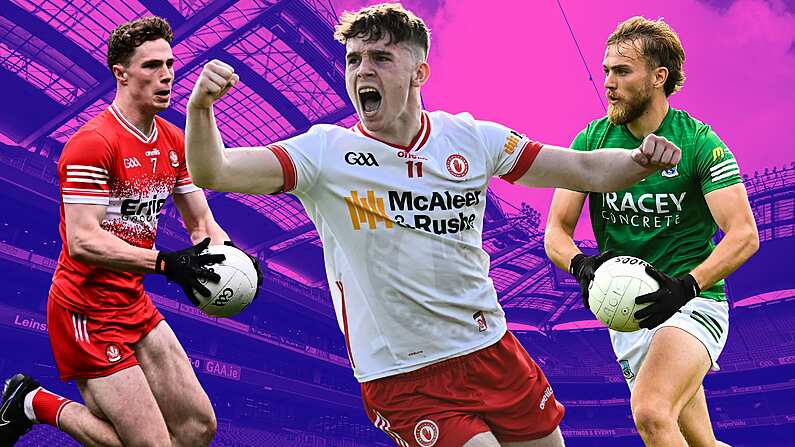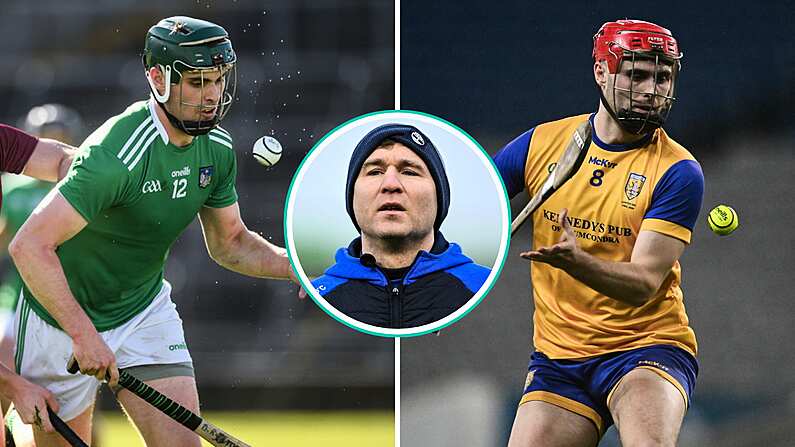The man behind the first ever compromised rules match between an Aussie Rules team and a Gaelic football side went to jail eventually - although not on account of anything that happened to Peter Canavan or Graham Geraghty.
Harry Beitzel was jailed for eighteen months in 1994 for defrauding an elderly couple to the tune of $1.8m over a soccer pools lottery game. He continues to deny he ever intentionally committed a crime.
A long-time AFL umpire (and latterly, a commentator and a media mogul), Beitzel was in Dublin for the 1966 All-Ireland final between Galway and Meath when the westerners sealed the three-in-a-row.
This was the game that birthed the compromise rules idea.
Beitzel was hit by the unavoidable similarities between the Irish and Australian codes and he immediately thought about the possibility of bringing a bunch of crack team of Aussie Rules footballers to Ireland to take on the locals.
The following year, this dream became a reality. A dynamic opportunist, Beitzel assembled a team known as the 'Galahs'. The Australian press and the AFL hierarchy were lukewarm about the venture. The notion of Aussie Rules lads kicking a round ball (of all objects) was anathema to traditionalists.
Cavalier about the prospect of losing money (he was already a successful enough businessman), Beitzel and his Australian team arrived at Dublin airport for the first leg of their World tour in October 1967.
The learning curve would be steep.
The Aussies were committed to taking on a civil service selection in Dublin in a warm-up match. The following week, they would face the recently crowned All-Ireland champions - Meath.
The game was not really compromised rules - it was, in fact, full on Gaelic football - with the exception of the pick-up rule, the one concession to the Aussies. Players would be allowed lift the ball straight off the ground.
Meath had recovered from their '66 final defeat and taken Cork in the 1967 All-Ireland final.
Beitzel was bullish about his boys' prospects of beating the All-Ireland champs at their own game. This was seen as fanciful talk by the blithely confident GAA scribes.
Their confidence was shaken afterwards.
It wasn't much considered at the time, but Meath were potentially a less daunting prospect than they had been a month before. Winning an All-Ireland title a month previously is not ideal preparation for something that amounts to an exhibition game.
Additionally, the reconnaissance work done by the Meath selectors was deeply misleading. Meath's famous full-back Jack Quinn remembers getting the lowdown on the Australians the week before.
Peter McDermott was over the (Meath) team at the time and Peter was after seeing them (the Aussies) playing a challenge in Dublin and he said 'these lads don't know how to play Gaelic football at all. They're good with the rugby ball and all that craic. So it shouldn't be that hard.' So we were after being drinking all week and we went up to Croke Park for a bit of a stroll and sure, they kicked the shite out of us...'
Meath were slaughtered 3-16 to 1-10. Their pride was stung. For Gaelic football people, it must have been like watching Hungary rip apart England at Wembley. Paddy Downey, in the Irish Times, wrote vividly about the exotic creatures which landed in Croke Park that day. He rhapsodised about the 'bronzed Aussie giants in their sleeveless jerseys looking like a line-up for a Mr. Universe contest.'
Meath were mere Lilliputians compared to the muscular Gullivers of the Antipodes.
In one afternoon, Essendon's Barry Davis had done enough to convince Downey that he was 'possibly the best full back ever to appear in Croke Park.' Other stars included Hawthorn's Ian Law and Ken Fraser, also of Essendon.
The same day, a Dublin selection took on an Australian selection in Australian Rules proper. The result confirmed that a compromised game would not work with an oval ball. The Australians scored 12-6 (78pts) to the Dubs' 3-4 (22pts).
The following week, the Galahs took on Connacht champions Mayo, again in Croke Park. The sleeveless boys won out again, 2-12 to 2-5.
The Irish genius for claiming moral victories was in show in the post-match reflections. Mayo's performance was certainly more respectable than Meath's had been. It was conceded in reports that the Aussie's greater fitness proved decisive in the end. Beitzel was generous enough to praise Mayo afterwards.
Mayo restored the image of Gaelic football. It was being said that Gaelic football lacked tactics. Mayo proved that they had tactics, and had they had they been fitter, I can tell you we would have been embarrassed. As it was, and you saw yourself, they had us worried.
Beitzel blew $5,000 on the trip (conservative estimate) but remained adamant it was worthwhile. Despite the Aussie victories, he insisted there was much for Australians to learn in Gaelic football.
Our players could learn increased skill in kicking, baulking, turning, ball-juggling and running the field from Gaelic football.
For their part, the Meath lads believed they had blown their chances of getting a trip to Australia. This carrot had been dangled in front of them before the Aussie game in Croker.
Early in '68, they accepted an invitation from Beitzel to travel down and have another go at the Australians.
Their first effort at playing football in the blazing heat of Perth was shambolic. Quinn recalls being 'shagged' after fifteen minutes. The local observers weren't impressed. It looked set to be a chastening summer for Gaelic football. But it was the Irish lads' turn to spring a surprise.
It's amazing what four or five days in the sun did, we kind of got used to it and sure we went out and beat Perth well. And then of course word spread to Melbourne that these lads are better than yiz think. So we went to Sydney and we won a game under lights. And then we had a fantastic game in Melbourne and we beat them of course. It was a fantastic game that day and they realised that this Meath team is not too bad at all.
And so next up we went to Adelaide and played them under lights. It was a great old game but Meath won there as well. There was a good crowd there for that. This thing all of a sudden was taking off.
The Meath subs ended up being plonked in a float for the Moomba festival parade in Melbourne. The Meath starters had to sit in the hotel watching the parade on telly.
There was the huge, big pay-day. The Moomba festival was on that morning and it's one of the biggest things in Australia. We were asked to go in the parade. It's like the St. Patrick's Day in Dublin. Some of the subs and the selectors went on it but the lads who were on the team weren't let go because we had to sit in the hotel and watch it.
The Australians got the best players they could and brought up these players from Adelaide and Sydney and Perth so it was a real Australian team. It was a great game and we won it again thank God.
We played five matches over there and won the five of them
Over the next 15 years, there were numerous failed attempts to get an international series up and running, with Beitzel chief among its advocates. Eventually, it came to pass in Croke Park in 1984.
The dominance of the touring sides, evident in the late '60s, remained a factor into the 1980s. In 1998, Ireland were the first side to win a home series.
Harry Beitzel remained a defender of the series through it's difficult periods. After the explosively controversial 2006 series, he wrote an almost emotional plea to the GAA appealing for them to keep the series alive.
As I write this plea, reading some of the comments it seems our two great fun loving peoples are now at each other’s throats. I can’t believe it. Surely to any thinking fan we need each other to develop our international tests and keep our games competitive against the world-wide football codes of soccer, rugby and rugby league.

